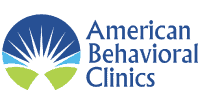
A new study from the Centers for Disease and Prevention shows girls are at an increased risk of sexual assault. While women in college have long been three times more likely to be victims of sexual abuse than any other age group, the study shows that high school students are at increased risk. Being sexually abused can lead to many mental health challenges.
Effects of Sexual Abuse on Mental Health
Women who are sexually abused often feel shame, isolation, shock, confusion and guilt.
Depression
Girls who are sexually abused early in life are about twice up to 48% more likely to develop depression as an adult. Research shows the more frequently a girl was abused and those forced to have intercourse were likely to develop depression as an adult. Researchers suggest that the abuse causes changes in the hypothalamic-pituitary-adrenal axis. Furthermore, some studies suggest that poor parenting leading to sexual abuse can be a significant contributing factor.
PTSD
Teens who have been sexually abused often have PTSD. They are likelier to show agitated behavior, experience frightening dreams and participate in repetitive play. Researchers believe that children with poor attachment to their parents are more likely to suffer PTSD after sexual abuse.
Substance Use Disorders
Many people who are sexually abused use drugs and alcohol to help them overcome the guilt, anger, anxiety and hopelessness they feel after being sexually abused. Drugs and alcohol can also be issues ahead of the sexual abuse as about 42% of women who are sexually abused are high on drugs or alcohol when the abuse occurs.
Eating Disorders
About 30% of women with eating disorders were sexually abused as a child. In particular, women were likely to develop bulimia nervosa and binge eating disorders. Some researchers believe that girls and young women who have been sexually abused use food as a crutch instead of learning to cope positively with their emotions.
If you have been sexually abused or are the parent of a child who has been sexually abused, contact us. We are here to help you.
Existing Patients and New Patients, Call us to schedule an appointment, get a prescription refill or just to ask a question:
New Patients ONLY - Want to contact us through a form? CLICK HERE to fill out our contact form.





